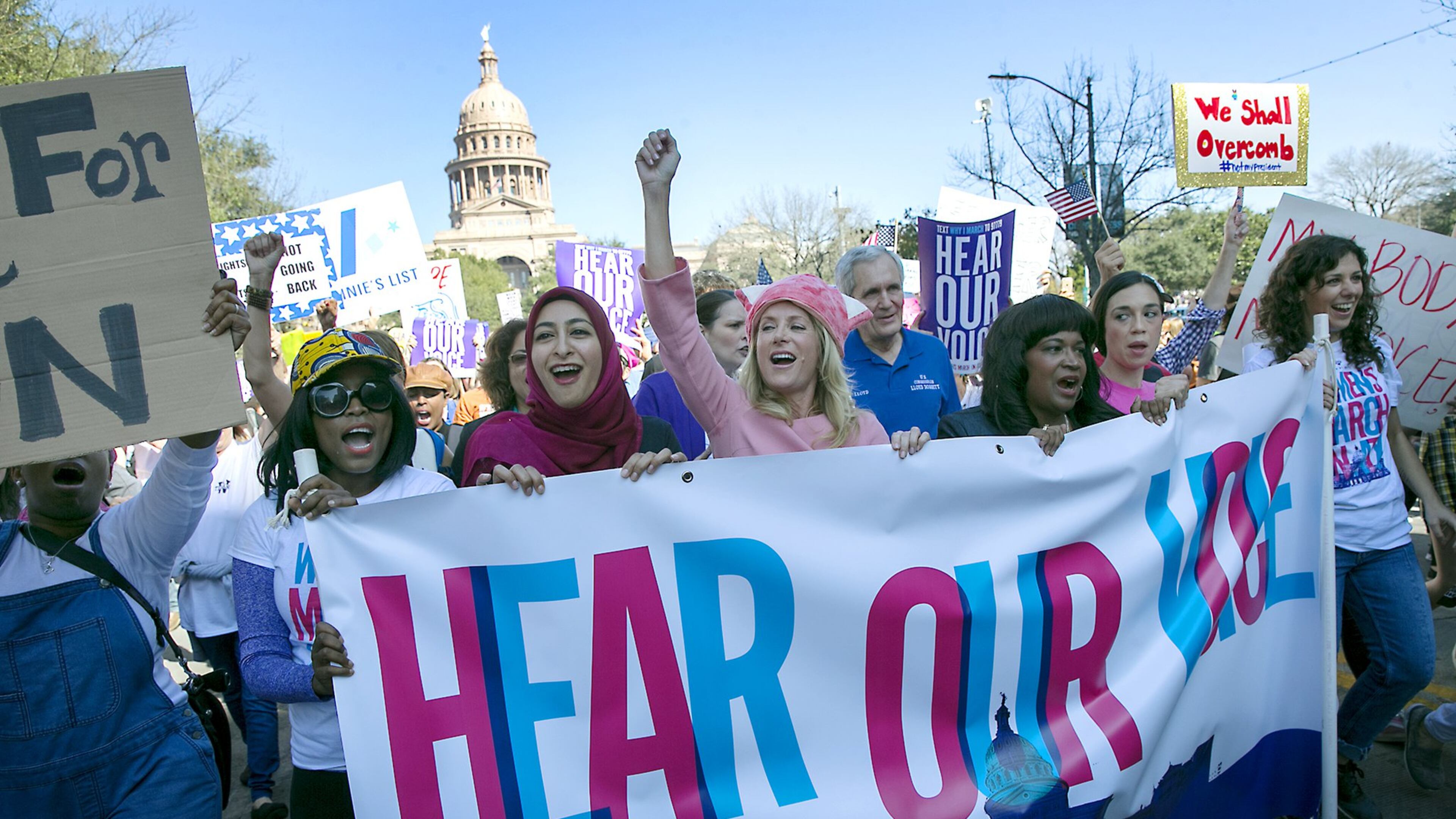Civil rights groups oppose state bills affecting ability to protest

Civil rights groups in Georgia are calling out state senate bills designed to protect citizens and law enforcement officials as thinly-veiled attempts to restrict freedom of speech and right to peacefully assemble in protest.
The American Civil Liberties Union of Georgia and Asian Americans Advancing Justice of Atlanta held a joint press conference Wednesday in opposition to Senate Bill 1, which broadly rewrites Georgia's domestic terrorism law to give the state attorney general more power, by overseeing multi-jurisdictional investigations, to prosecute alleged terrorists, and Senate Bill 160, which increases punishment to individuals who assault police officers.
“These bills are designed to attack our first amendment rights as people who want to protest and express ourselves and for us to be able to protest in the ways we need to with the different attacks that are coming to immigrant communities, people of color and to women,” said Stephanie Cho, executive director of AAAJ.
The legislation comes at a time of heightened political activity and civic engagement.
More than 60,000 people attended the March for Women and Social Justice in Atlanta, one of more than 600 marches held around the world the day after President Donald Trump was inaugurated in support of civil liberties and human rights, and airport officials estimated almost 7,000 people protested at Hartsfield-Jackson airport in Atlanta, following an executive order signed by Trump that temporarily barred people from seven predominantly Muslim nations, imposed a four-month ban on the resettlement of any refugees and indefinitely ended resettlement of refugees from war-torn Syria.
After the shooting of two black men by police officers in Louisiana and Minnesota and a man was found hanging from a tree in Piedmont Park last July, protesters temporarily shut down the Downtown Connector, posing what lawmakers viewed as a public inconvenience.
“We are opposed to any legislation that would enhance penalties, create felonies for people who are involved in protest is directly affected at impeding people’s right to be hear and to express their political views,” said Andrea Young, executive director of ACLU of Georgia. “These are young people who are very enthusiastic about being engaged in political speech and political expression. If they begin to be branded as felons, we are taking some of our most civilly-engaged young people and making it difficult for them to continue their career.”
The bill also create a separate Homeland Security agency for additional oversight and lowers state standards to identify an individual, such as Dylann Roof, a white man who in 2015 shot and killed nine African-American people in a Charleston, S.C. church, as a domestic terrorist. The label only applies now if someone kills 10 or more people.
Senate Majority Leader Bill Cowsert, a Republican from Athens and sponsor of SB 1, said the measure is "intended to keep our state safe."
State Sens. Lester Jackson, D-Savannah, and Harold Jones II, D-Augusta, worked with Cowsert on an amendment that would include wording to specifically protect constitutionally protected speech and lawful protests.
But Aisha Yaqoob, policy director for AAAJ, said the amendment could still deter people from protesting “because of the threat of a felony conviction in the future” and views the agency as a government overreach and a “waste of taxpayer resources.”
“We see it as an attempt for hate crime legislation. We don’t feel like it is doing it justice,” said Yaqoob, “even though it might be something that could be used to prosecute people who are attacking communities of color or immigrants.”
SB 160, referred to as the "Back the Badge" bill, expands protections for on-duty law enforcement officers and increases punishments for those who have been found to pose risk against them.
It would increase the punishment to protesters who block public passages, such as highways, streets and sidewalks from a misdemeanor to a misdemeanor of high and aggravated nature and allow prosecutors to seek up to $5,000 in fines or 12 months in jail for violators.
“This is a definite, unfair punishment for those who are trying to exercise their freedom of speech,” said Christopher Bruce, a lobbyist for ACLU of Georgia.
Public Safety Committee Chairman Tyler Harper, the bill's sponsor, said Feb. 24 that the legislation "only deals with individuals who do not go through proper channels to hold a protest" such as giving notice and applying for a permit. "We do respect your right to protest, we do respect your right to rally," said Harper, a Republican from Ocilla, "but we ask that you do so through the proper channels."



